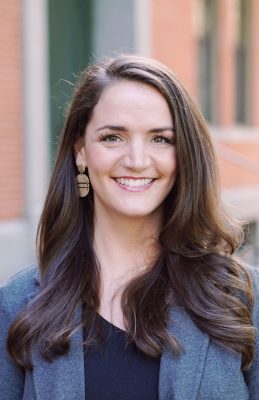Focused Research Program Faculty Member Awarded NIH Funding to Tackle Childhood Health Disparities
BY GINA MANTICA
One of the greatest unmet childhood healthcare needs in the United States is preventable. Early Childhood Caries is the occurrence of tooth decay in children younger than six years of age and disproportionately affects kids from disadvantaged backgrounds. But there are population dynamics at work that affect parents’ and caregivers’ health behaviors, including their knowledge of the problem and their ability and willingness to visit pediatric dentists. Researchers at Boston University are studying how social influences affect the incidence of Early Childhood Caries.
Brenda Heaton, Associate Professor in the Department of Health Policy & Health Services Research at the BU Dental School and the Department of Epidemiology at the BU School of Public Health, was awarded funding recently from the National Institutes of Health (NIH) to test how and why social connections influence population disparities in Early Childhood Caries. The project, “Modeling complex mechanisms underlying oral health disparities in young children and their caregivers”, synergizes with the Hariri Institute’s Simulation Modeling for Population Health Focused Research Program (FRP) that Heaton leads.
While many preventative interventions, such as the use of topical fluorides, have strong evidence as to their effectiveness, in the case of Early Childhood Caries large scale deployment of these interventions has failed to address the burden of disease for the most vulnerable populations. As soon as one tooth is affected by the disease, a cycle of tooth decay begins that is difficult to stop. To address disparities in Early Childhood Caries, researchers need to find ways to both prevent the occurrence of decay, as well as to accelerate the time it takes for kids to get into dental care and restore teeth to health before the condition become severe and costly intervention is required.
Heaton and colleagues will use simulation modeling to test how interventions that change social connectedness, or the nature of a person’s social network, affect the incidence of Early Childhood Caries in a public housing community. Simulation modeling mimics reality and enables researchers to conduct experiments in computers before with people. To inform these models, the researchers interview residents to understand their social network and ask who people talk to about personal matters or who they seek advice from, for example. They use this information on people’s connections to build a simulated environment. “We need to understand the basic properties of how people connect to others in order to build a model that mimics reality,” said Heaton. The researchers then test how different interventions change social connections or the properties of those connections within a community to impact future health and health behaviors.
Poor health behaviors, like dietary choices, smoking, and even avoiding the dentist, can spread across social networks much like a virus. Combining modeling with real-world information enables researchers to find effective ways to intervene before poor behaviors start to influence community health. “The social disparities of Early Childhood Caries are really stark. It is something that I feel demands attention, innovation and methods that can actually address the underlying mechanisms that are producing these disparities,” said Heaton.
Interested in learning more about the research happening at the Hariri Institute? Sign up for our newsletter here.
